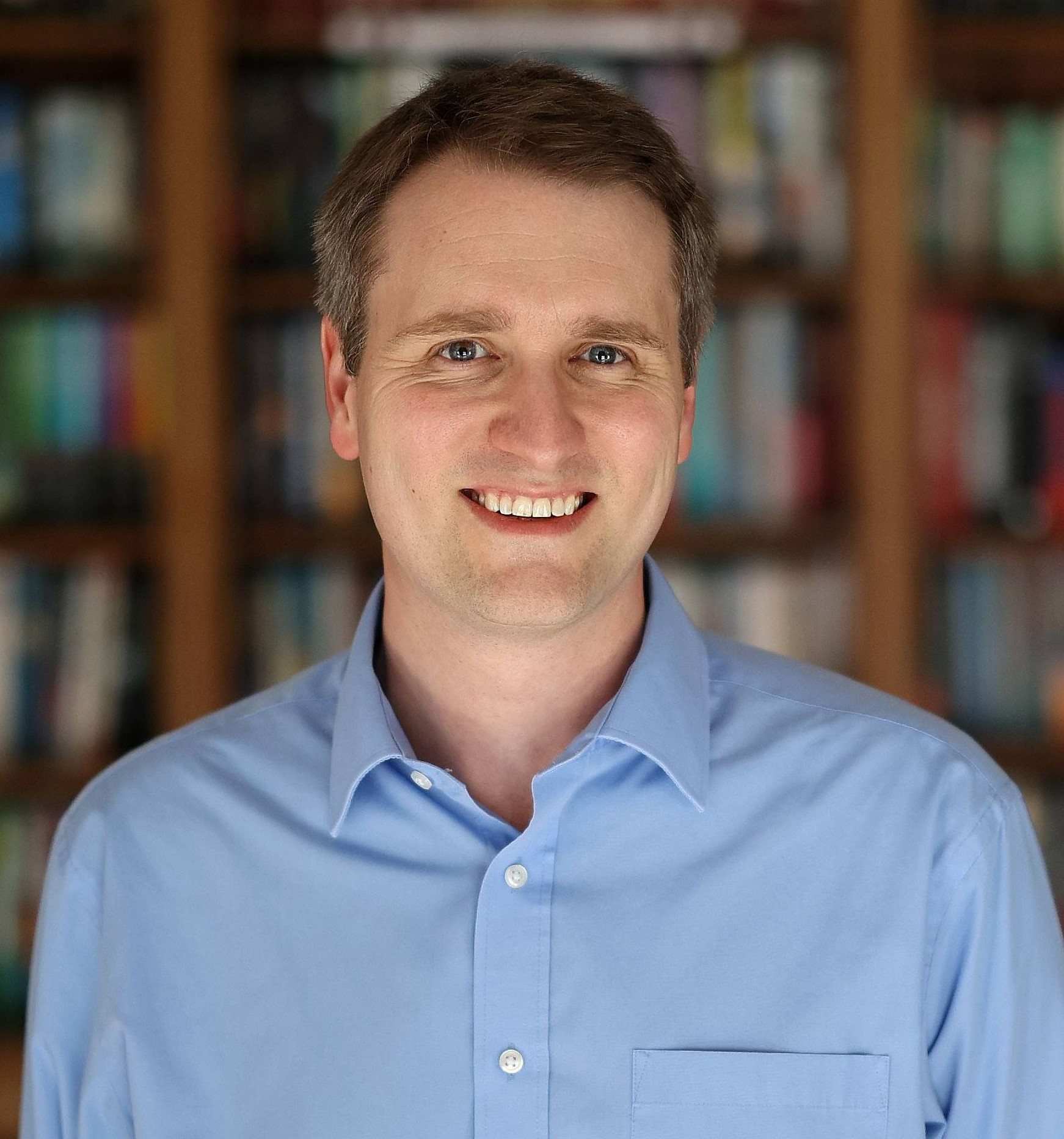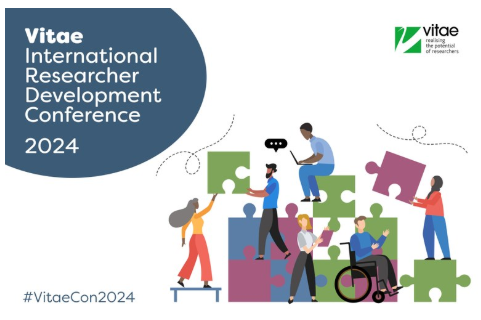Perfecting the Partnership: Exploring co-development between researcher developers and research staff
Posted on: 16 December 2024 by Dr Andrew Holmes (Number of words: 1198; Read time: 5 minutes) in Blog posts

Dr Andrew Holmes is a Researcher Developer focussing on Research Staff at the University of Liverpool. Prior to joining the Researcher Development & Culture team, Andrew was a member of the Prosper team, supporting career development for postdocs and leading the Managers of Researchers strand. Andrew is passionate about supporting early career researchers and brings his experiences as a postdoc and a research developer to his role.
Before I started my current role in the summer of 2023, I hadn’t fully appreciated how closely the University of Liverpool’s Researcher Development and Culture team (RDC) and the Research Staff Association (RSA) work together.
The RDC team and the RSA Steering Committee collaborate to co-create development opportunities for research staff across the institution. This partnership has resulted a number of successful activities, including in the Research Staff Conference, Buddy Schemes for both staff and postgraduate research students, Lunch and Learn seminars, celebratory and community building events, charity fundraising initiatives, monthly coffee mornings, the Images of Research annual photography competition and more.
Practicalities
All these events don’t just happen by accident and the RDC team and RSA Steering Committee meet every three weeks and utilise an active Teams channel to maintain the collaboration. At the tri-weekly meetings the two teams discuss event planning, provide updates from faculties and central services, highlight areas of future work and celebrate both individual and team successes. It’s a supportive arrangement, with peers helping one another.
Working closely together enable us to communicate opportunities and news to research staff via weekly e-bulletins, posters, case studies, blogs and podcasts. As an example, every week one member of the RSA steering committee (organised by rota) drafts an e-bulletin based on events and news collated by both the RSA and RDC team. The draft is shared in the Teams channel and checked by members of both teams before it’s then sent to all research staff across the university.
The partnership also enables researchers to contribute to wider university processes, including participating in committees and steering groups such as the Concordat Steering Group, Athena Swan Charter, Race Equality Charter, Research and Impact Committee and the Staff Wellbeing Steering Group.
The result is a collaboration that reveals and highlights the needs and challenges faced by research staff and acts to address those needs through co-designing development activities and by ensuring researchers have a voice in university-wide discussions. It’s an intertwined symbiosis that vastly increases the reach and impact of both groups.
Looking at co-development beyond Liverpool
Having worked as a researcher developer only at the University of Liverpool, I wanted to hear from others about how they worked with their research staff at their institutions and what we could learn from them.
Leading a workshop at the recent Vitae International Researcher Development Conference 2024 provided the perfect opportunity to share and learn from other researcher developers and research staff about how they collaborate at their institutions. Participants discussed their own experiences and practices in an open and friendly way, sharing what has worked well or not. It was fascinating to hear how things are done elsewhere.

Just as every university is different, how research staff and researcher developers work together differs with institution too. Some institutions work more on a devolved basis, with committees and/or ECR representatives in faculties and no central research staff organisation. Others are in the process of setting up central ECR networks and building those working relationships. A few institutions have similar structures to here at Liverpool, with research staff and researcher developer teams collaborating to various degrees.
The advantages of co-creation
There is no ‘correct’ way for researcher developers and research staff to work together. All participants, however, agreed on the importance of research staff having input into their own development opportunities.
The roles of researcher developer and research staff are very different in many ways but there are similarities too. There are benefits and potential pitfalls to this. It’s easy for researcher developers to prescribe development opportunities or for research staff to create their own opportunities without benefiting from the experience of researcher developers. For instance, one participant mentioned how an existing research staff network at their institution felt very ‘researcher development-led’ but that they’ve just arranged for a researcher to lead the network which they hoped would increase engagement and collaboration.
The workshop highlighted how complementary the two types of roles are. It’s not just that co-creation increases the number and variety of events we can organise, or that participation on the RSA Steering Committee at Liverpool provides an important development experience for research staff whilst supported by a dedicated researcher development team.
Research staff bring their own direct experiences and what they’ve learned from their peers; they know the types of development opportunities they’d like to see and have plenty of ideas of how to address them. Meanwhile, researcher developers bring their practical experiences of facilitating opportunities and a remit to proactively address gaps in development, particularly for diverse groups of researchers.
The discussions during the workshop confirmed to me that our different roles allow us to together take a broader, more inclusive and more responsive approach to researcher development that wouldn’t be possible if we operated in silos.
Developing the future
The workshop also provided plenty of food for thought as well, with participants discussing what they’d like to achieve in the future. Ideas included a campaign of peer-to-peer workshops, funding for researchers to run their own development activities, specific support for long-term researchers, incentivisation for researchers to participate in co-creation activities, and working with academics, managers of researchers and PIs to foster a positive development culture at an institutional level.
I think the RCD and RSA achieve great things here at Liverpool, but I wonder how we can improve further still. I’m interested in the peer-to-peer workshops that one participant mentioned. I’ve recently worked with RSA members to organise a day-long writing retreat and a Lunch & Learn seminar on academic publishing. Whilst I helped with the organisation, RSA members themselves designed and led the sessions and feedback from participants was positive. We’ve already discussed running more writing retreats delivered by research staff and I’d be interested in seeing if we can work together to create more seminars led by research staff based on their own experiences. We could also incorporate research staff speaking of their own relevant experiences at events led by professional services staff.
I’m also interested in how we can utilise our existing experiences and skills to support more established researchers, and I hope our recent work creating the University of Liverpool Fellows Development Programme is the start of that process.
Concluding remarks
For me, hearing from other researcher developers at the workshop highlighted the importance of working with researchers to co-create development opportunities for research staff. Whilst not every institution works in the same way we do at Liverpool, all acknowledge and value the input of research staff into their own development opportunities. Preparing for the workshop also helped me to better understand and appreciate how we work here at Liverpool, helping me to recognise the many benefits of the partnership.
Leading the workshop deepened my knowledge of my current career path and provided inspiration for what other development activities we could facilitate. I hope it did similar for all the participants.
With thanks to all the participants of the workshop, to Dr Amy Birch, Dr Rishav Agrawal and Dr Stella Morgana for participating as the University of Liverpool-based discussion panel, and to Vitae for the opportunity of leading the workshop.
Keywords: Researchers, Research Staff Association, Team work, The Academy, Vitae.